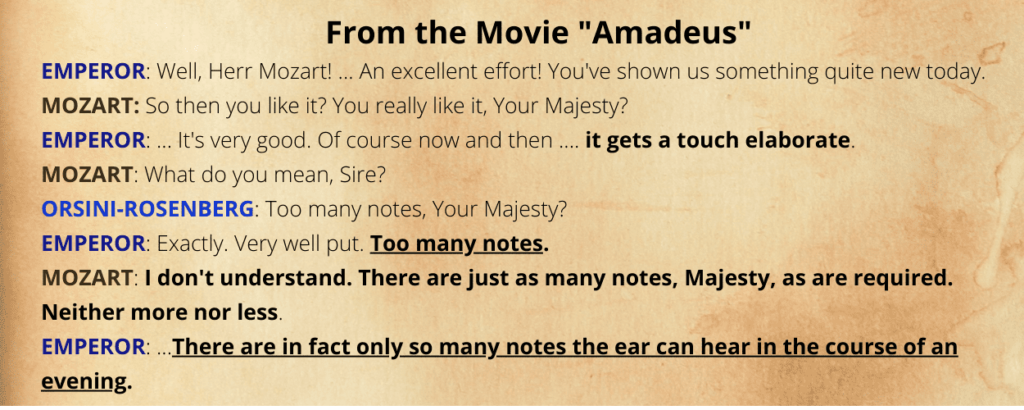
Less Is More
Less is more. How many times have you sat in front of a form to apply for an opportunity? And there it is: Give us your biography in 250 words. 250 words?! Are you kidding?! Or, you speak at Toastmasters. Give us your best talk in 5-7 minutes. Oh, man.
Recently, I gave a talk at my Toastmasters group. I’m happy to say it went well. My project was to “get to know my sense of humor.” Ha! It is amazing to combine teaching something thoughtful with humor. We know people learn better in laughter. But it is not so easy to do, is it?
My fellow club members were laughing at all the right places. I was even told it was my best talk yet they had heard from me. My evaluator praised me. Thank you. Of course, she is here to also give me points to grow on.
Her message: Less is more. Hmm. It seems I have heard that more than once.
“I didn’t have time to write you a short letter, so I wrote you a long one.”
Mark Twain
Wow. Yes, it is true. If you have less time you have got to think more about how to get your point across fast.
Engaging people with humor at the same time – well, that’s another level.
Less is more. If you can believe the movie “Amadeus,” even Mozart was told that one of his symphonies – as amazing as it was- had “too many notes.”
Less is more. It does not sound like a valid mathematical equation. But it does sound like great advice for a lot of situations, for example:
- Parenting your teenager. Say less and make your point. Your kid might actually hear you. If he doesn’t, a longer message would not have enhanced your success.
- Telling others what you do. For me, it can be as short as “I am a Brilliance Extractor.” Let the person become curious and ask what that means. (Then answer it in one sentence).
- Telling a story. Keep the plotline clear. Flesh it out with details that make the audience feel like they can see, hear, touch, feel, and taste the scene you are describing. But stay away from stuffing the story with uneccessary details.
I’m telling it to myself at least just as much as I am suggesting it to you. As I said in my talk, scientists (or “recovering scientists” like myself) often have a hard time whittling down the details when it comes to storytelling. For me, that is true when it comes to MY details (seeing the story amidst lots of details for other people is much easier for me).
In my talk, I suggested that there may be a genetic predisposition for the inferior telling of my stories. Wouldn’t it be nice if we could “snip off” the lousy storytelling gene and replace it with a perfect one?
I asked my doctor about it. She said that kind of gene therapy was currently experimental at best – and my insurance would not pay for it. So, I guess I’m left to continue to practice. 🙂
Less is more. Time to stop this Brilliance Nugget.
I’m Curious
How does “Less is More” apply to you?
Live Brilliantly,
Dr. Stephie